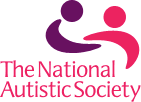Asperger's Syndrome
Regarded by some as a distinctive condition. Asperger’s Syndrome (AS) is viewed by others as the higher-ability aspect of the autistic spectrum. Individuals with AS can have symptoms ranging from mild to severe but tend to have serious difficulties with communication and social skills. Children often speak in a monotonous or exaggerated tone and at great length about topics which interest them. They avoid eye contact and often have obsessive repetitive routines and preoccupation.
Because of their high degree of functionality and their naivite, those with AS are often thought of as ‘odd’, and are frequently a target for bullying. The causes of AS are still under investigation but research suggests that it may not be the result of a single factor but a series of neuro-biological triggers that affect brain development. Numbers affected are thought to be in the region of between 10 – 36 every 10,000: with more males than females affected.
The main characteristics of Asperger’s Syndrome are:
Difficulties with social relationships. They find it difficult to read the signals which most of us take for granted and find it hard to interact with others.
Difficulties with communication. They may speak very fluently but not take much notice of the reaction of people listening to them: they may talk on and on regardless of the listener’s interest or may appear insensitive to their feelings. Despite having good language skills, people with Asperger’s Syndrome may sound over-precise or over-literal – jokes can cause problems as can exaggerated language and metaphors: for example, a person with Asperger’s Syndrome may be confused or frightened by a statement like “she bit my head off”.
Difficulties with social imagination, imaginative play and flexible thinking. While they often excel at learning facts and figures, people with Asperger syndrome find it hard to think in abstract way. This can cause problems for children in school where they may have difficulty with certain subjects, such as literature or religious studies.
Not every child is the same but some characteristics may be:
Socially awkward and clumsy in relations with other children or adults.
Naïve and gullible.
Often unaware of others’ feelings.
Unable to carry on a “give and take’ conversation.
Easily upset by changes in routines and transitions.
Liberal in speech and understanding.
Sensitive to loud sounds, lights or odours.
Fixated on one subject or object
Physically awkward in sports.
They may have:
· unusually accurate memory for details
· sleeping or eating problems
· trouble understanding things they have heard or read
· inappropriate body language or facial expression
· unusual speech patterns (repetitive an/or irrelevant remarks)
· stilted, formal manner of speaking
· unusually loud, high or monotonous voice
· tendency to rock, fidget or pace while concentrating
Because of their high degree of functionality and their naivite, those with AS are often thought of as ‘odd’, and are frequently a target for bullying. The causes of AS are still under investigation but research suggests that it may not be the result of a single factor but a series of neuro-biological triggers that affect brain development. Numbers affected are thought to be in the region of between 10 – 36 every 10,000: with more males than females affected.
The main characteristics of Asperger’s Syndrome are:
Difficulties with social relationships. They find it difficult to read the signals which most of us take for granted and find it hard to interact with others.
Difficulties with communication. They may speak very fluently but not take much notice of the reaction of people listening to them: they may talk on and on regardless of the listener’s interest or may appear insensitive to their feelings. Despite having good language skills, people with Asperger’s Syndrome may sound over-precise or over-literal – jokes can cause problems as can exaggerated language and metaphors: for example, a person with Asperger’s Syndrome may be confused or frightened by a statement like “she bit my head off”.
Difficulties with social imagination, imaginative play and flexible thinking. While they often excel at learning facts and figures, people with Asperger syndrome find it hard to think in abstract way. This can cause problems for children in school where they may have difficulty with certain subjects, such as literature or religious studies.
Not every child is the same but some characteristics may be:
Socially awkward and clumsy in relations with other children or adults.
Naïve and gullible.
Often unaware of others’ feelings.
Unable to carry on a “give and take’ conversation.
Easily upset by changes in routines and transitions.
Liberal in speech and understanding.
Sensitive to loud sounds, lights or odours.
Fixated on one subject or object
Physically awkward in sports.
They may have:
· unusually accurate memory for details
· sleeping or eating problems
· trouble understanding things they have heard or read
· inappropriate body language or facial expression
· unusual speech patterns (repetitive an/or irrelevant remarks)
· stilted, formal manner of speaking
· unusually loud, high or monotonous voice
· tendency to rock, fidget or pace while concentrating


